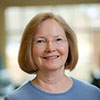This article is more than 5 years old.
I attended this year’s NCLA Conference in Hickory on October 6, and went through the usual pre-conference dithering over sessions to attend. Although I would have enjoyed one presentation on researching Civil War ancestors, given the approach of the War’s sesquicentennial and a recent summer pilgrimage to Gettysburg with two keenly engaged family members, I opted for a pragmatic topic of interest, “Patrons Left to Their Own Devices: Library Databases and E-Readers.” The four presenters, Lynda Kellam and Amy Harris of UNCG, Mark Sanders of ECU, and Lauren P., succinctly covered the attributes, virtues, and vices of the Amazon Kindle, Apple iPad, Sony Touch, and nookColor eReaders. Their varying designs, capabilities, and ease of use were covered both from old gen and new gen perspectives, with a quick round at the end of “Why I Like My —–.” One recurring theme was the continued challenge for libraries and their patrons regarding the integrations of e-readers with library e-books and full-text library databases. No magic wand in sight at the present moment.
I attended the REMCo Luncheon and thoroughly enjoyed not only the food and the speaker, but also especially a chance conversation at our table with Philip Cherry III, Vice-Chair/Chair Elect. He had attended that Civil War Ancestors session, and told me how he was involved in a fascinating project involving tracing Onslow County slaves who had participated in the War. As an example, he recounted how the name of one former slave, who had been on a large Onslow plantation raided by Union troops, shows up in a later census in the Lake Pontchartrain area, with the right age. Now his descendants are cooperating with the project to determine if it is indeed the same individual, since their ancestral tracking stops at that census; no one has any idea, of course, as to how he ended up in the New Orleans area. One can easily imagine the challenges of such a project, given the vagaries of plantation slave and African-American soldier record-keeping, as well as the vicissitudes of post-Emancipation struggles of former slaves. The luncheon speaker was Nooma Rhue, of Preserve Pro, Inc. An archivist, library director, and author, she discussed the impetus and experience behind her book, Organizing and Preserving Family History and Religious Records. Her experience had commenced at Johnson C. Smith University, where she had been tasked with organizing the Inez Moore Parker Archives, then in a state of absolute disarray. This led to a career in archival work melded with community engagement, all buttressed by a strong sense of mission regarding the importance of preserving family and religious archives.
In the afternoon, I spent a couple of hours volunteering for Sarah at the Conference Store, trying to emulate sales techniques for pushing items that needed to be sold (e.g. the unique Dewey Decimal-embellished coffee mug that would otherwise need to be shipped back to ALA, or time-limited Conference T-shirts). It was fun to chat with people as they came to browse and buy. Oddly enough, I constantly had to suppress an impulse to keep statistics….

2 Comments on ‘EllenD at NCLA’
Sounds like you went to some interesting sessions. Thanks for volunteering at the Conference Store!
I’d love to find out the process for researching slaves and tracking their movements after the war-then trying to understand the how’s and why’s of this process within the post-war environment. Great write-up.